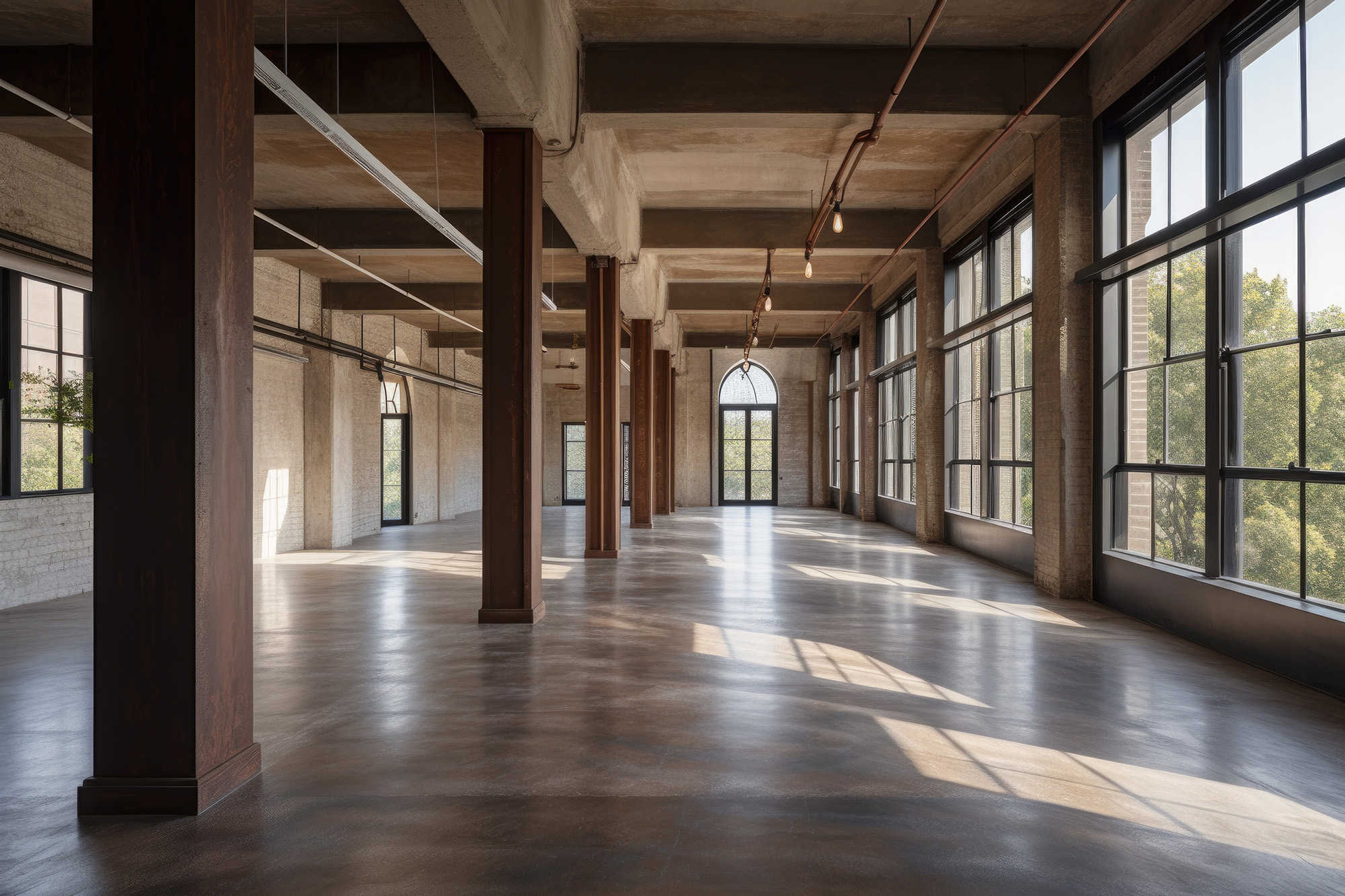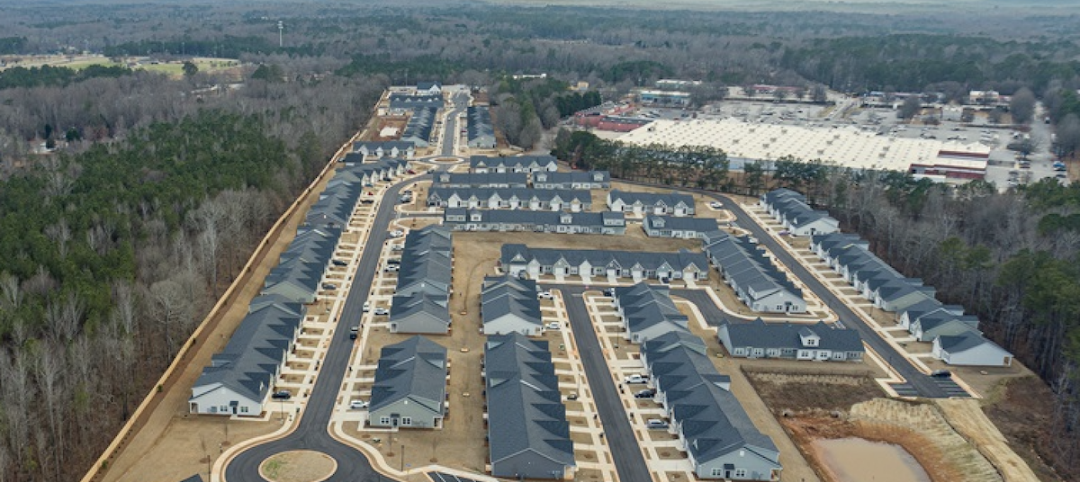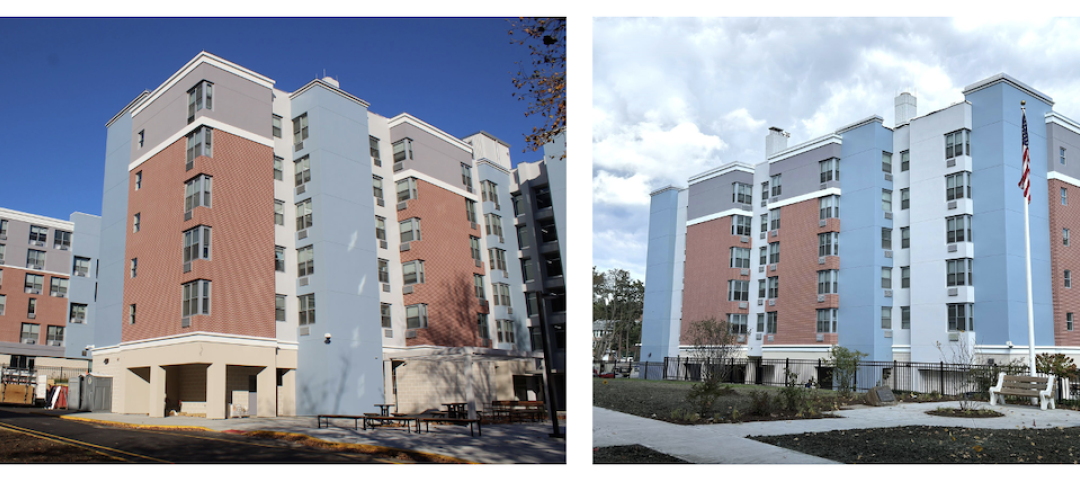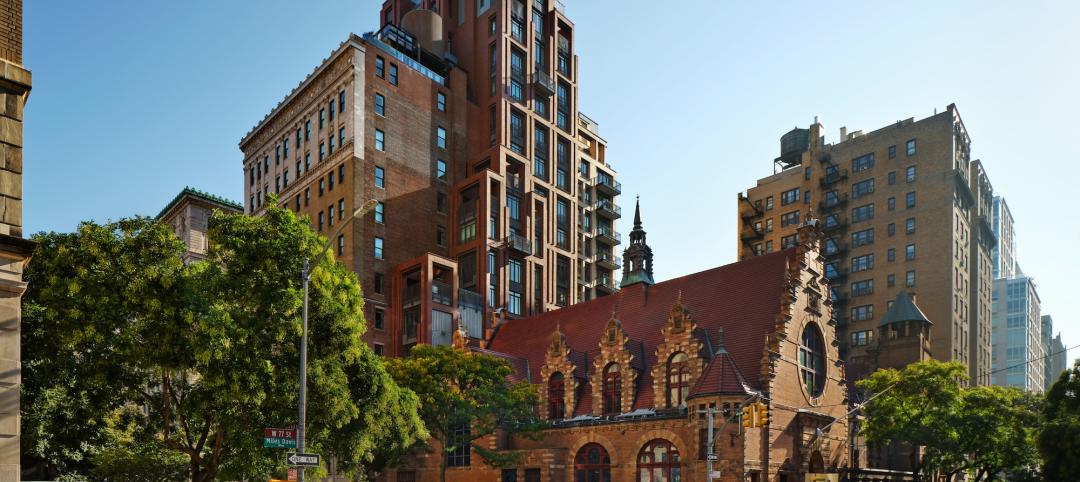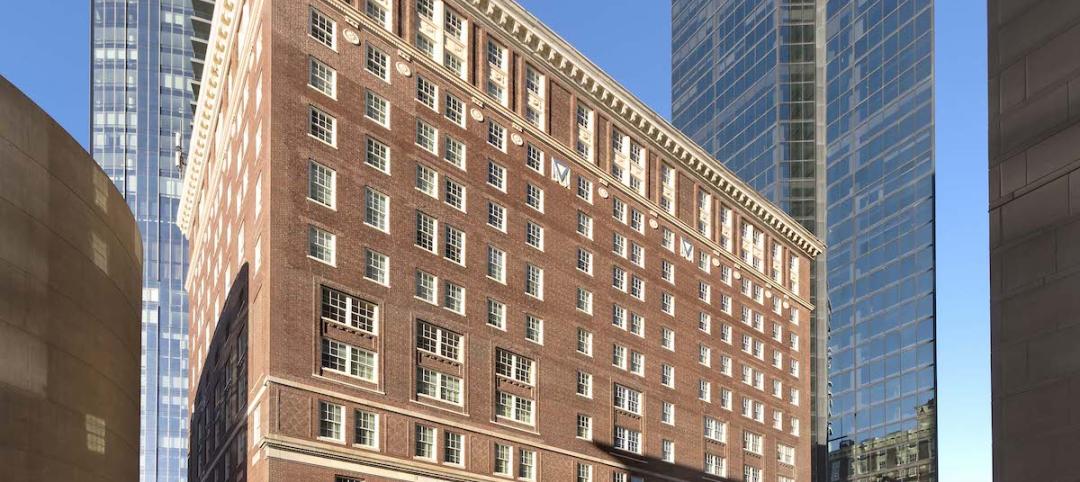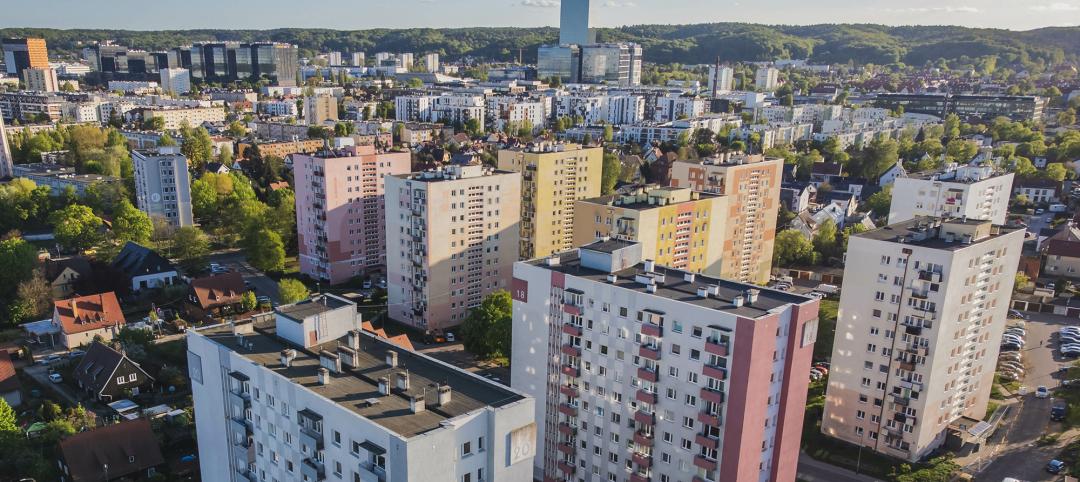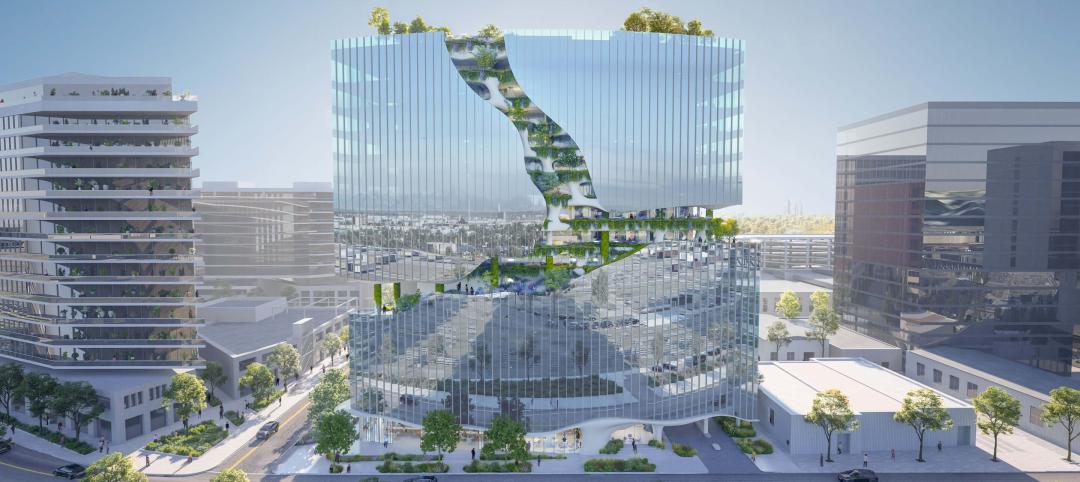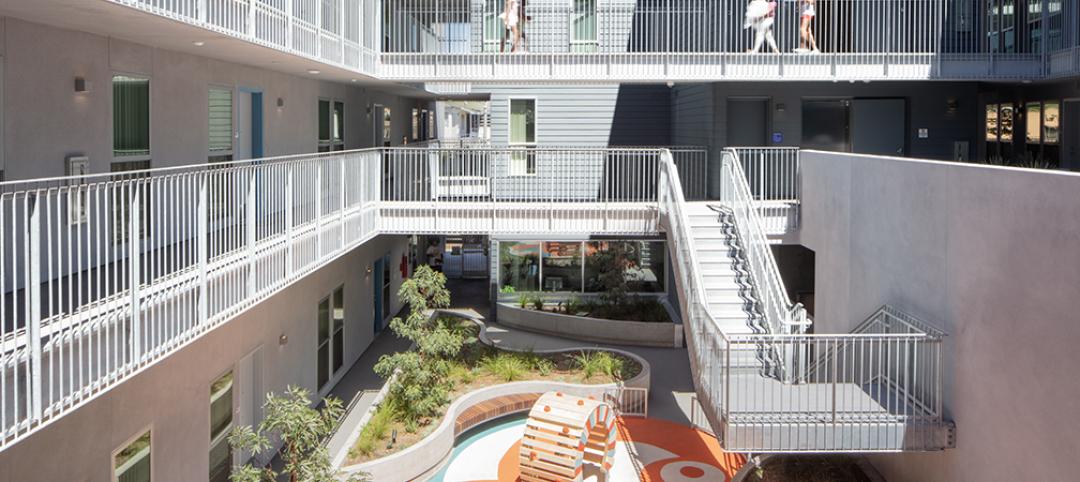Lamar Johnson Collaborative (LJC), a full-service architecture firm headquartered in Chicago, announced the debut of the firm’s Adaptive Reuse Scorecard, a proprietary methodology to quickly analyze the viability of converting vacant office and commercial buildings to other uses, such as hotels and residences.
“Working with existing structures involves complexities that often create a lengthy pre-development process, requiring developers to commit significant resources before they even determine a project is viable,” said Alan Barker, firm principal. “LJC’s Adaptive Reuse Scorecard enables us to assess a potential conversion project much more quickly and earlier in the process, something we anticipate will become even more important given conversations in the industry about the potential of adaptive reuse as a solution for the housing shortage and option for vacant commercial buildings.”
Developed by the firm’s architects, designers, engineers, and development and construction experts with experience in the nuances of adaptive reuse projects, the scorecard focuses on seven categories:
- Development potential
- Building form
- Building systems such as elevator and heat/AC
- Connectivity—walkability, parking and access to public transit
- Amenities and sustainability
- Building skin
- Intangible factors, which include a building’s history, reputation and marketing potential
Adaptive Reuse Scorecard Metrics
A weighted score of one to 100 is assigned to each of these categories, which are then averaged to determine a building’s suitability for adaptive reuse. Projects with a total score above 70% are considered viable candidates for conversion.
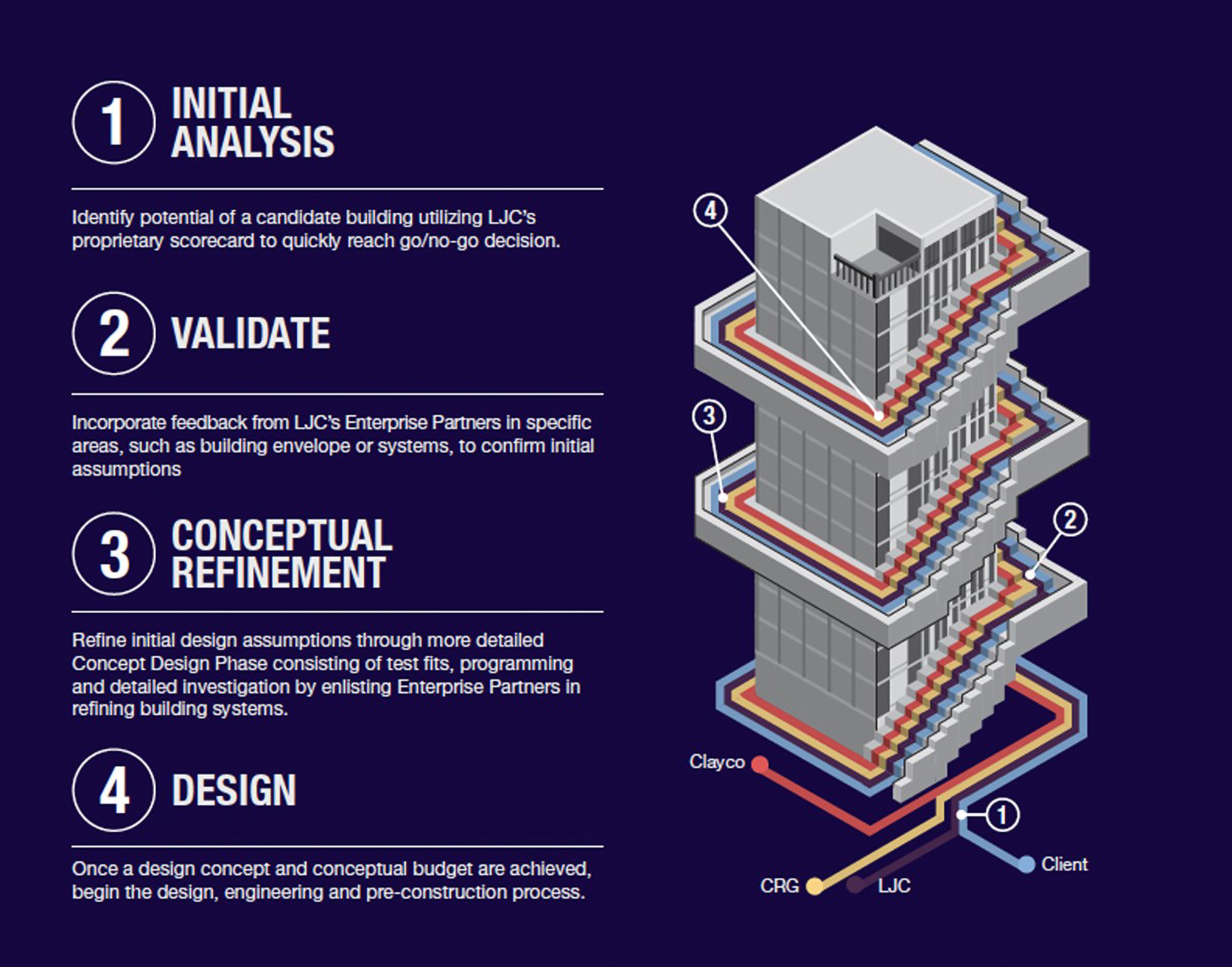
“As a subsidiary of Clayco, LJC is able to tap the expertise of our partner companies to generate insights about a potential project’s design, engineering, construction, glazing system and other factors to quickly create an integrated assessment of a building’s suitability for adaptive reuse,” Barker said. “Given the inherent unpredictability in adaptive reuse projects, clients benefit from this methodology because it provides flexibility, encourages innovation, and enables us to address unforeseen conditions as they arise.”
After further refinement to finalize the design and budget concepts—and with client signoff—the design, engineering, and preconstruction process begins.
With its scorecard beta testing complete using a sampling of buildings in the Chicago and Los Angeles areas, the firm looks forward to working with developers in cities across the country on adaptive reuse candidates. “We anticipate there will be a growing volume of this type of work, and the scorecard will undoubtedly help us to quickly evaluate projects and select those that pencil out financially for our clients,” Barker said.
Firms interested in having a potential conversion project analyzed by LJC using its Adaptive Reuse Scorecard should contact adaptivereuse@theljc.com.
About Lamar Johnson Collaborative
Lamar Johnson Collaborative (LJC) is a Chicago-based full-service design and architecture firm that provides integrated delivery and full turnkey solutions across multiple industries. LJC’s services include architecture, interior design, landscape architecture, planning and urban design, sustainability and technical/quality assurance. The company is a wholly owned subsidiary of Clayco, a full-service, real estate, architecture, engineering, design-build and construction firm. Though LJC works closely with companies in the Clayco family of brands, more than half of its business is with outside developers and general contractors.
Related Stories
Multifamily Housing | Mar 19, 2024
Jim Chapman Construction Group completes its second college town BTR community
JCCG's 200-unit Cottages at Lexington, in Athens, Ga., is fully leased.
Multifamily Housing | Mar 19, 2024
Two senior housing properties renovated with 608 replacement windows
Renovation of the two properties, with 200 apartments for seniors, was financed through a special public/private arrangement.
MFPRO+ New Projects | Mar 18, 2024
Luxury apartments in New York restore and renovate a century-old residential building
COOKFOX Architects has completed a luxury apartment building at 378 West End Avenue in New York City. The project restored and renovated the original residence built in 1915, while extending a new structure east on West 78th Street.
Multifamily Housing | Mar 18, 2024
YWCA building in Boston’s Back Bay converted into 210 affordable rental apartments
Renovation of YWCA at 140 Clarendon Street will serve 111 previously unhoused families and individuals.
MFPRO+ News | Mar 16, 2024
Multifamily rents stable heading into spring 2024
National asking multifamily rents posted their first increase in over seven months in February. The average U.S. asking rent rose $1 to $1,713 in February 2024, up 0.6% year-over-year.
Adaptive Reuse | Mar 15, 2024
San Francisco voters approve tax break for office-to-residential conversions
San Francisco voters recently approved a ballot measure to offer tax breaks to developers who convert commercial buildings to residential use. The tax break applies to conversions of up to 5 million sf of commercial space through 2030.
Apartments | Mar 13, 2024
A landscaped canyon runs through this luxury apartment development in Denver
Set to open in April, One River North is a 16-story, 187-unit luxury apartment building with private, open-air terraces located in Denver’s RiNo arts district. Biophilic design plays a central role throughout the building, allowing residents to connect with nature and providing a distinctive living experience.
Affordable Housing | Mar 12, 2024
An all-electric affordable housing project in Southern California offers 48 apartments plus community spaces
In Santa Monica, Calif., Brunson Terrace is an all-electric, 100% affordable housing project that’s over eight times more energy efficient than similar buildings, according to architect Brooks + Scarpa. Located across the street from Santa Monica College, the net zero building has been certified LEED Platinum.
MFPRO+ News | Mar 12, 2024
Multifamily housing starts and permitting activity drop 10% year-over-year
The past year saw over 1.4 million new homes added to the national housing inventory. Despite the 4% growth in units, both the number of new homes under construction and the number of permits dropped year-over-year.
Affordable Housing | Mar 11, 2024
Los Angeles’s streamlined approval policies leading to boom in affordable housing plans
Since December 2022, Los Angeles’s planning department has received plans for more than 13,770 affordable units. The number of units put in the approval pipeline in roughly one year is just below the total number of affordable units approved in Los Angeles in 2020, 2021, and 2022 combined.



